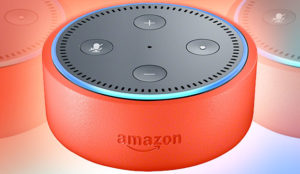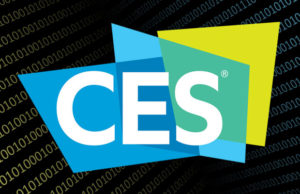
Facebook last week announced more detailed plans to bring affordable Internet access to every person on the planet.
Mark Zuckerberg, the company’s chief executive, revealed some fresh details about the work Facebook’s Connectivity Lab is carrying out to build drones, satellites and lasers geared to providing connectivity for everyone as part of the Internet.org initiative.
The lab has made strong progress, noted Zuckerberg, with projects in the Philippines and Paraguay doubling the number of people who use mobile data connections through Facebook’s telecom partners, enabling a total of 3 million new people to access the Internet.
Aerospace Experts
Facebook’s Connectivity Lab team is looking at innovative ways of bringing access to the billions of people who do not yet have it. The team includes aerospace and communications technology experts from institutions such as NASA’s Jet Propulsion Lab (which is behind projects including the Mars Curiosity rover) and Ames Research Center.
Facebook just added key team members from Ascenta, which has expertise in designing and building high-altitude long endurance aircraft. The team members have more than 100 years’ experience in the aerospace industry, holding leadership positions with companies including Boeing and QinetiQ. The company’s founders created Zephyr, which was the planet’s longest-flying unmanned aircraft powered by solar energy. Those team members will join the Connectivity Lab group that works on connectivity aircraft.
Earlier this month, Facebook was rumored to be in talks to buy drone manufacturer Titan Aerospace to bolster the Internet.org project.
New Delivery Platforms
The Connectivity Lab’s approach to solving the complex problem is in providing different solutions to different-sized communities. They are creating new delivery platforms like planes and satellites to bring Internet access to communities.
“Facebook has now joined the group of companies that throws stuff against the wall waiting to see what sticks,” telecom analyst Jeff Kagan told TechNewsWorld.
“What sounds crazy today often becomes commonplace tomorrow. Could something like this complicate efforts by some countries to restrict or control Internet access? Sure. However those countries will develop ways to interfere with this signal if they want,” he pointed out.
The Connectivity Lab team has been working on solar-powered high altitude long endurance (HALE) aircraft that can stay in the air for months without needing to land. These devices can be deployed quickly and provide reliable connectivity. Facebook plans to deploy them in suburban areas in limited geographical regions.
Geosynchronous Satellites
In lower-density population areas, the team is more likely to use low-Earth orbit and geosynchronous satellites that can beam Internet access to the ground.
The team is examining the use of free-space optical communication for all of these solutions. FSO is a way of transmitting data through space via infrared laser beams that are invisible to the naked eye. FSO may allow the team to drastically increase the speed of connections that satellites and drones can offer.
There are still many challenges in place, however, between Facebook’s team and bringing reliable, affordable Internet access to all.
‘Hypothetical’ Approaches
“Other than the satellite technology mentioned in the announcement, the other approaches are largely hypothetical both technologically and financially,” Charles King, principal at Pund-It, told TechNewsWorld.
“HALE aircraft are in their infancy from a commercial standpoint, and PSO is more or less prenatal. So Facebook and its partners have a long way to go to prove that these approaches are both workable and financially sustainable,” he said.
“The largest issues may actually be regulatory — arranging agreements with ruling bodies in the countries involved, some of which are technologically unsophisticated and/or view outsiders with suspicion,” King added.
“It may be easier to get a HALE aircraft off the ground than to hammer out agreements on the ground. Another issue is proving the relative value of Internet access in places where access to clean drinking water and sanitary toilets is unknown or a work in progress. I understand technology boosterism, but the Internet can’t and won’t fix everything,” he pointed out.
“It is pretty complex and technology-rich in areas where the weather, skills and ecosystem have trouble handling pre-industrial revolution technology. Logistics and support will be a nightmare,” noted Rob Enderle, principal at the Enderle Group.
“These environments trend towards tropical and are a nightmare for machines and particularly electronics. They likely should be using a lower tech approach because the local environment will chew up and spit out high-tech,” he told TechNewsWorld.
‘Shooting Down’
“I expect some governments will just shoot this stuff down and arrest, deport or remove folks trying to get around local laws and rules preventing access,” Enderle continued.
“It will certainly make containment for the governments harder, but governments have armies and typically don’t react well to this kind of activity,” he observed.
“This can potentially put a big crimp in some totalitarian governments’ [efforts] to restrict and control citizens’ access, because the ability to connect to the Internet could literally be flying overhead. I’m sure certain countries are already having fits,” Laura DiDio, principal at ITIC, told TechNewsWorld.
“On the other hand, this technology could prove to be a real boon for sparsely populated areas — even here in the U.S. — where there is no electricity and where there are very long distances to cellphone towers and therefore no Internet or mobile phone access,” she said. “The best examples of this are Native American Indian reservations.”




















































